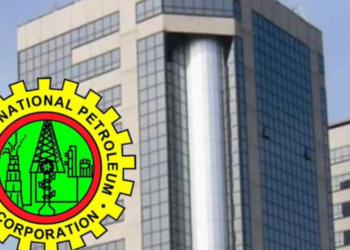In a significant legal development, Justice Inyang Ekwo of the Federal High Court in Abuja has dismissed a lawsuit brought by Exxon Mobil Producing Nigeria Unlimited against the Nigerian Midstream and Downstream Petroleum Regulatory Authority (NMDPRA).
The dismissal was a result of Exxon Mobil’s decision to formally withdraw the lawsuit in a rather unexpected twist. On the day designated for judgment, Exxon Mobil applied to discontinue the legal proceedings and requested the court to strike out the suit.
In response, counsel to the NMDPRA argued that the issues in the case had already been thoroughly discussed, and the court should set a definitive legal precedent. Consequently, the court ruled in favor of dismissing the suit.
Dr. Emeka Akabogu, counsel to the NMDPRA, noted that this legal outcome is a substantial step in Nigeria’s ongoing efforts against oil theft. It ensures separate monitoring of activities within various segments of the oil and gas value chain undertaken by relevant stakeholders.
This ruling carries significant implications for the Nigerian petroleum industry as it upholds the regulatory authority of the NMDPRA, as outlined in the Petroleum Industry Act of 2021. This authority extends over all midstream and downstream operations, including those involving international oil companies.
The origin of this legal dispute dates back to June 2023 when Exxon Mobil filed an originating summons, seeking a determination regarding which regulatory body had the authority to designate and approve its operations as integrated operations under the Petroleum Industry Act of 2021.
The lawsuit stemmed from a challenge by the NMDPRA regarding the approval of Mobil’s operations as integrated upstream operations by the Nigerian Upstream Petroleum Regulatory Commission (NUPRC).
After legal representatives for both parties presented their arguments and briefs on July 27, Justice Ekwo scheduled the judgment for October 25, 2023.
However, during the judgment day proceedings, Exxon Mobil’s counsel, Ituah Imhanze, informed the court of their motion to withdraw the suit. Imhanze stated that the motion had been filed on October 23 and served on the NMDPRA, the sole defendant in the case.
The senior lawyer representing the NMDPRA, Ama Atuwewe, did not oppose the withdrawal but urged the court to dismiss the suit rather than striking it out. He further requested the court to award high costs in favor of his client.
Imhanze disagreed with Atuwewe’s stance, arguing that he would not concede to any costs. He emphasized his duty as a minister in the temple of justice to bring any developments in a case to the court’s attention.
In light of recently issued presidential policy directives that touched on the matter at hand, Justice Ekwo ultimately dismissed the lawsuit without awarding any costs.
Exxon Mobil had initiated this legal action to challenge the NMDPRA’s competence in regulating certain aspects of its operations, such as butane lifting, which the company asserted were integrated into its Oil Mining Leases (OMLs). Exxon Mobil argued that these operations fell within the exclusive regulatory jurisdiction of the Nigerian Upstream Petroleum Regulatory Commission (NUPRC).
The court’s ruling is expected to hold significant implications for the Nigerian petroleum industry, affirming the regulatory authority of the NMDPRA as outlined in the Petroleum Industry Act of 2021. It extends to all midstream and downstream operations, including those involving international oil companies, marking a milestone in the country’s fight against oil theft and ensuring appropriate oversight of the oil and gas value chain.









